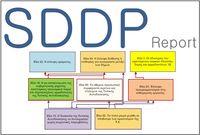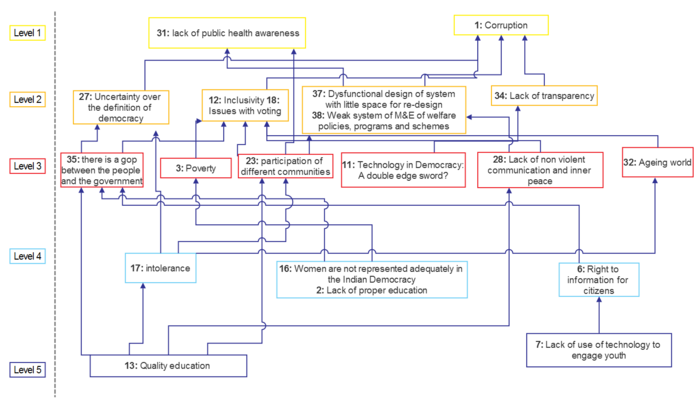SDDP Reinventing Democracy - Challenges (Australasia Initiative)
|
Executive Summary
This paper reports the results of the second of a series of workshops organized by Future Worlds Center under the auspices of UNDEF. The dialogue was implemented in the context of the Reinventing Democracy in the Digital Era (UNDEF) project. The purpose of this project was to bring together young people from all aroud the world in an attempt to take apart and reconstruct the concept of democracy. The workshop was organized using the structured dialogic design process (SDDP) approach within the context of a rich web-based communication environment. This Co-Laboratoty was organized using the Structured Democratic Dialogue Process (SDDP) approach within the context of a rich web-based communication environment. It is organized by Australasian Initiative.
The Triggering Question (TQ) was
"What are key shortcomings of our current systems of governance that could be improved through technology?"
In response to the TQ, the 17 participants came up with 38 challenges, which were categorized in 7 clusters. Following the voting process, 20 challenges were structured to create the influence MAP shown below.
According to the participants of this workshop, the following challenges appear to be the most influential:
- Challenge 7: Lack of use of technology to engage youth
- Challenge 13: Quality education
- Challenge 6: Right to information for citizens
- Challenge 16: Women are not represented adequately in the Indian democracy
- Challenge 2: Lack of proper education
- Challenge 17: intolerance
Gallery
Participants
| Name | Country |
|---|---|
| Rafay Iqbal Ansari [1] | Pakistan |
| Uzma Gul [2] | Pakistan |
| Shagun Sharma [3] | India |
| Tamzid Sikder [4] | Bangladesh |
| Suraj Raj Pandey [5] | Nepal |
| Sakshi Sharma [6] | India |
| Gayan Rajapaksha [7] | Sri Lanka |
| Shivam Aggarwal [8] | India |
| Shadi Rouhshahbaz [9] | Iran |
| Afsaneh Seifnaji [10] | Iran |
| Manasvi Sathish [11] | Iran |
|
Omang Agarwal [12] |
India |

